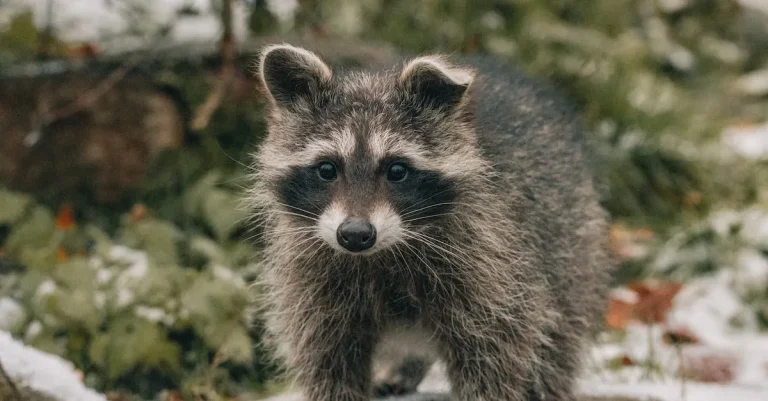Birds swooping or diving at people is a common occurrence, especially during nesting season. If you’ve had a bird aggressively charge at your head, you may be wondering why this happened and if it has any deeper meaning.
If you’re short on time, here’s a quick answer to your question: Birds attacking heads is usually territorial behavior triggered by you getting too close to their nests or young. It doesn’t have a deeper spiritual or symbolic meaning.
In this comprehensive guide, we’ll explore all the reasons birds attack heads, what you can do to prevent and respond to attacks, and whether bird strikes have any symbolic or spiritual significance.
Common Reasons Birds Attack Heads
Have you ever experienced the unsettling moment when a bird suddenly swoops down and attacks your head? While it may seem like a random act of aggression, there are actually several common reasons why birds engage in this behavior. Understanding these reasons can help us coexist peacefully with our feathered friends.
Defending Nests and Young
One of the main reasons birds may attack your head is to defend their nests and young. Birds are fiercely protective of their offspring and will do whatever it takes to ensure their safety. If you unknowingly approach a nest, a bird may see you as a threat and react defensively. It’s important to remember that birds are simply trying to protect their young and are not intentionally trying to harm you.
According to the Cornell Lab of Ornithology, some bird species are more prone to attacking humans when they get too close to their nests. For example, the American Robin is known to dive and peck at intruders, including humans, to protect its nest. So, if you find yourself under attack, it’s likely that you have unintentionally stumbled upon a bird’s nesting area.
Foraging Behavior
Another reason birds may attack heads is due to their foraging behavior. Birds are constantly searching for food, and sometimes they mistake our heads for a potential source of sustenance. This is more common in urban areas where birds have become accustomed to humans and may associate them with a source of food.
For example, seagulls are notorious for swooping down on unsuspecting beachgoers and snatching their snacks. While it may be frustrating to have a bird steal your sandwich, it’s important to remember that they are simply following their natural instincts to survive. So, next time you’re enjoying a picnic, make sure to keep an eye on your food and be prepared for some feathered thieves!
Misdirected Aggression
Sometimes, birds may engage in misdirected aggression, which can result in attacks on human heads. This occurs when a bird is agitated or threatened by another bird or animal, and in its confusion, it mistakenly directs its aggression towards a nearby human. It’s important to note that this behavior is not intentional and is simply a case of mistaken identity.
According to a study published in the journal “Behavioural Processes,” misdirected aggression in birds often occurs during the breeding season when tensions are high. So, if you find yourself on the receiving end of a bird’s aggression, it’s likely that you are simply caught in the crossfire of a territorial dispute.
What to Do When a Bird Attacks Your Head
Protect Your Head and Eyes
If you find yourself in a situation where a bird is attacking your head, it’s important to protect yourself from any potential injuries. The first thing you should do is cover your head and eyes with your hands or an object like a hat or a bag. This will help shield you from the bird’s claws or beak, which can cause scratches or puncture wounds. Remember, birds may attack out of fear or to defend their territory, so it’s crucial to protect yourself.
According to the Audubon Society, wearing a hat or sunglasses can also be helpful in preventing bird attacks. Brightly colored hats may attract birds, so it’s best to opt for neutral colors. Additionally, sunglasses can protect your eyes from scratches or potential eye injuries.
Move Away Slowly and Calmly
Once you have protected your head and eyes, the next step is to move away from the bird slowly and calmly. Sudden movements can startle the bird and escalate the situation. Avoid flailing your arms or making any loud noises, as this may further agitate the bird.
It’s important to remember that birds may attack if they perceive you as a threat or if they are protecting their nest or young. By moving away slowly and calmly, you are showing the bird that you mean no harm and are not a threat to them or their territory.
If the bird continues to attack or shows signs of aggression even after you have moved away, it’s advisable to seek shelter indoors or find a nearby safe area. Contacting your local animal control or wildlife rescue organization can also provide guidance on how to handle the situation.
Remember, it’s always best to respect wildlife and observe them from a safe distance. If you find yourself in a situation where a bird attacks your head, following these steps can help ensure your safety and the well-being of the bird.
How to Prevent Bird Strikes
Bird strikes can be a startling and sometimes painful experience. If you’ve ever had a bird attack your head, you know how important it is to take measures to prevent such encounters. Here are some tips to help you avoid bird strikes:
Avoid Nesting Areas
One way to prevent bird strikes is to avoid areas where birds are likely to nest. Birds can become territorial during nesting season and may see you as a threat to their nest. Avoid walking near trees or bushes where birds are actively nesting. If you notice a bird swooping towards you, it’s best to change your path and give them space.
Use Umbrellas or Hats
If you find yourself in an area with a high bird population, using an umbrella or wearing a hat can provide protection. Birds are less likely to swoop down and attack if they see an obstacle above your head. An umbrella or hat can act as a physical barrier and deter birds from getting too close. Plus, it can also protect you from any droppings that may be aimed in your direction.
Install Bird Control Measures
If bird strikes are a frequent occurrence in your area, it may be worth considering installing bird control measures. These can include bird spikes, netting, or scare devices. Bird spikes are often placed on ledges or rooftops to prevent birds from perching or nesting. Netting can be used to cover areas where birds tend to congregate, such as balconies or gardens. Scare devices, such as owl decoys or reflective tape, can also help deter birds from approaching certain areas.
By taking these precautions, you can greatly reduce the chances of experiencing a bird strike. Remember, birds are generally just protecting their territory or searching for food, so it’s best to coexist peacefully and give them the space they need.
Symbolic Meaning of Birds Attacking Heads
Have you ever experienced a bird swooping down and attacking your head? While it may be a startling and unpleasant encounter, there are various interpretations of what this could symbolize. Let’s explore two possible meanings below.
No Deeper Meaning
In some cases, a bird attacking your head may not have any deeper symbolic meaning at all. Birds are naturally territorial creatures and may become aggressive if they feel threatened or if their nesting area is encroached upon. So, if you find yourself in the vicinity of a bird’s nest and it decides to swoop down on you, it could simply be a protective instinct triggered by your presence.
It’s important to remember that birds have different personalities, just like humans. Some birds may be more prone to aggression, while others may be quite docile. Therefore, it is possible that the bird attacking your head was simply acting on its own unique temperament and not trying to convey any particular message.
Sign of Fertility and Abundance in Some Cultures
In certain cultures, a bird attacking your head can be seen as a positive sign associated with fertility and abundance. For example, in ancient Roman and Greek mythology, birds were often considered messengers from the gods. If a bird targeted your head, it was believed to be a sign that you were chosen to receive blessings of prosperity and fertility.
This symbolic interpretation can also be found in various folklore and traditional beliefs around the world. In some Native American cultures, for instance, a bird attacking your head was viewed as a symbol of upcoming success and good fortune.
While these symbolic interpretations may not have any scientific basis, they provide an interesting insight into the diverse cultural beliefs surrounding bird behavior. It’s important to approach these interpretations with an open mind and consider the cultural context in which they arise.
Remember, encounters with birds attacking your head are relatively rare, and it is more likely that they are simply reacting to their environmental circumstances rather than conveying a specific message. So, if a bird decides to swoop down on you, it may be best to admire its beauty and resilience rather than seeking a profound meaning behind the encounter.
When to Seek Help for Bird AttacksWhile it may be common to encounter birds swooping or dive-bombing when they feel threatened, there are certain situations where it is advisable to seek help. This can ensure your safety and the well-being of the birds involved. Here are some instances where seeking assistance is recommended:
Severe or Repeated Attacks
If you find yourself being subjected to severe or repeated attacks by a bird, it is important to take action. This could indicate that the bird is exhibiting aggressive behavior or is protecting its territory or nest. While some birds may simply be defending themselves, others may pose a genuine threat. If you are experiencing persistent attacks that are causing harm or distress, it is best to reach out to local wildlife authorities or bird experts for guidance.
Attacked by Larger Bird Species
Being attacked by a larger bird species can be a more intimidating experience. Certain birds, such as hawks or owls, have powerful beaks and talons that can cause serious injuries. If you are attacked by a larger bird species and sustain injuries, it is crucial to seek immediate medical attention. Even if the injuries appear minor, it is still important to have them properly assessed and treated. Additionally, reporting the incident to local wildlife authorities can help prevent future attacks and ensure the safety of both humans and birds.
Remember, while birds may seem harmless and peaceful most of the time, there are situations where their behavior can become aggressive or pose a danger. Seeking help when needed can help mitigate any potential risks and ensure the well-being of everyone involved.
Conclusion
While having a bird aggressively charge at your head can be startling, in most cases it’s simply territorial behavior and not indicative of any spiritual or symbolic meaning. With some awareness of nesting seasons and habits, as well as deterrents, you can prevent being dive bombed. Seek help for severe or repeated attacks, especially by larger hawks or crows. Otherwise, rest assured the bird is just defending its turf and doesn’t have it out for you personally!






